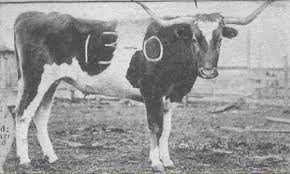A Collective’s #StudentBlackOut Seeks to Ramp Up the Pressure on Colleges
A group known as the Black Liberation Collective has become a central coordinating hub for helping students put pressure on their college to improve the experience of minority students.
They are working with students to coordinate another day of action following the one held on November 18th. The event will be university specific and could involve sit-ins, marches, or social media campaigns to help students present their demands.
The group hopes to keep up the momentum, help new individuals starting the process, and work with students to get their demands met despite the upcoming break from classes.
 |
| David C. Turner III, Ph.D. student and organizer with the Black Liberation Collective |
Wisconsin Grad Students Want Pay Parity Across Disciplines
In 1969, Wisconsin’s graduate student union was able to get equal pay for graduate students in all disciplines by arguing equal pay for equal work.
However, this organization is far different today and they are not able to bargain the same way as before. Instead, the university is allowing departments to set wages and students are not included in the debate.
The university president has admitted students should have been included in the panel, but argues that departments have been paying more for STEM fields through bonuses and grants.
They also argue that it is easier for students to compare graduate programs by knowing how much they will receive ahead of time and that the rule allows departments to set the upper limit not the lower limit.
Still graduate students outside of STEM fields argue that this process is unfair.
What the Supreme Court Will Be Asking as It Revisits Affirmative Action
The Supreme Court has previously reviewed this case and handed down a 7 to 1 ruling that the lower courts did not properly scrutinize the legality of Texas’ policy.
Ms. Fisher says that Texas unnecessarily considers race in its admission process. She cites that the top 10% rule brings in enough diversity to meet their requirements.
The university argues that colleges have the leeway to decide admissions and that the top 10% rule brings in mainly low income students from high schools with a majority of students of color. They argue that their admissions process takes into consideration students of color from more integrated schools.
This article examines several questions concerning the case including the basis of the lawsuit, the underpinnings of Texas' policy, and what the numbers demonstrate.
 |
| Abigail Fisher arriving at a hearing in Austin last month |
When Recruiting Teenagers, Don't Forget to Question Your Assumptions
According to recent surveys, college admissions officers and prospective students disagree on what methods of communication work best when recruiting.
Most admissions officers believe Facebook and print material are dead despite differing views by students.
The survey also showed students are unlikely to use social media when searching for prospective colleges instead favoring the colleges’ website.
The article states that college admissions officers need to think about what strategies work best and not waste time getting on board with new apps if they won’t be very helpful in the end.
For Researchers, Risk is a Vanishing Luxury
Dr. Roberta Ross, vice president for innovation at The University of Texas School of Public Health, has toured the country arguing for the value of taking risk in scientific research.
However, early-career scientists spoke up about lack of ability to take risks when it comes to determining promotions and getting tenure. This prompted Dr. Ross to write The Creativity Crisis which details her view of the erosion of the American research university.
She claims that in today's culture, "predictability is prized over boldness" as universities have become increasingly reliant upon federal grants and flat financing.
 |
| Dr. Roberta Ross, author of The Creativity Crisis |
A Piece of UT Austin History
There are many myths about how the beloved UT mascot, Bevo, got his name. However, Texas Exes has provided us with the truth about Bevo.
The gist is that on Thanksgiving Day of 1916, during halftime of a UT and A&M game, two cowboys brought a steer on the field. UT won the game and a report was published in the paper where the author, Ben Dyer, stated "His name is Bevo. Long may he reign!" While debating what to do with Bevo in the months after the game, A&M students broke into Bevo's living quarters and branded the steer with 13-0, the score of a previous game in which A&M beat UT.
Some theories about where Ben Dyer came up with the name Bevo include a soda drink by the same name or more likely, taking the slang for cow "beeve" and adding an "o" at the end which was commonly done at the time.
 |
| The original Bevo |
 |
| The soda that may have contributed to Bevo's name |
 |
| In Memoriam for Bevo 14 |
Summaries written by Kelsey Thompson and Stephanie Nandlal




















